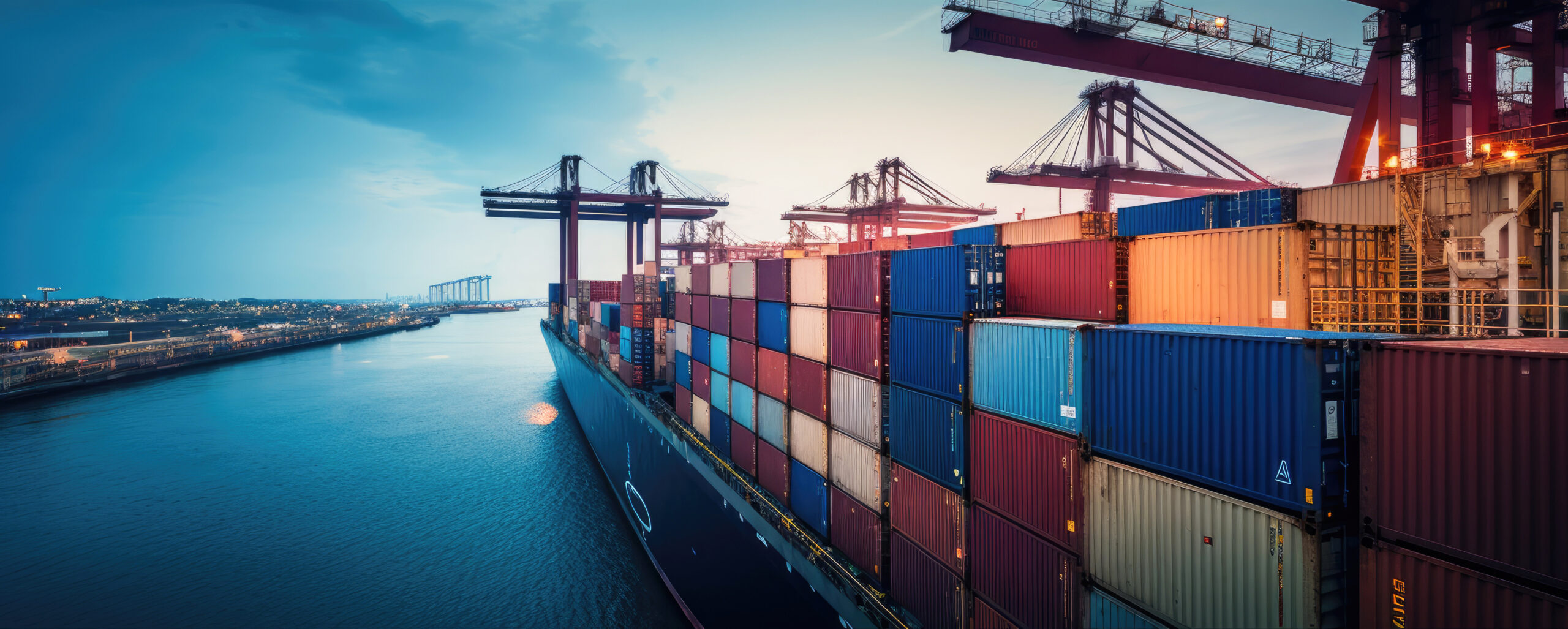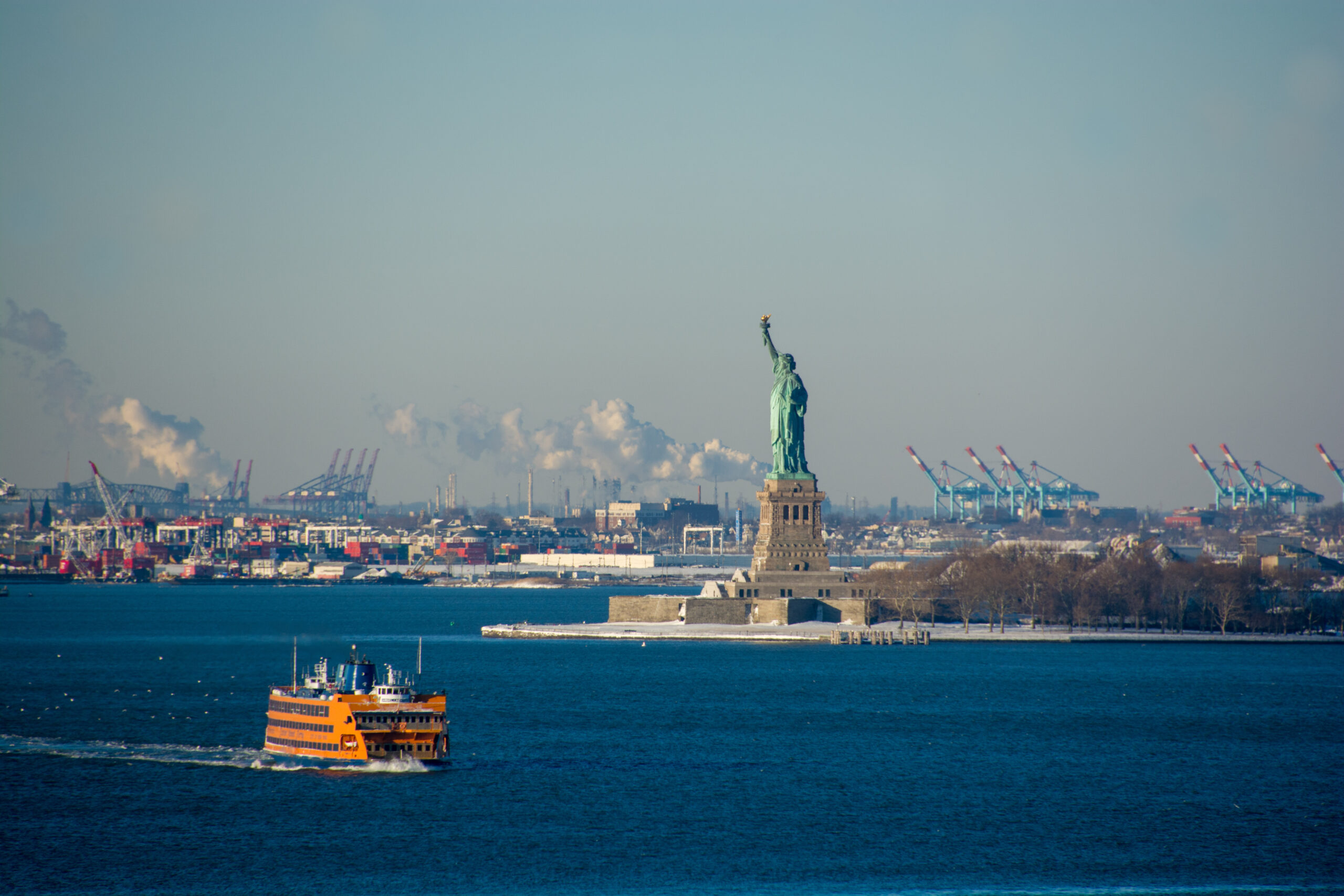Posts tagged dockworkers
Dockworkers along the East Coast are threatening to strike in October
August 14, 2024 // Full-time registered longshore workers on the West Coast, which had its own share of unrest last year, earned an average of nearly $200,000 a year in 2022, according to an estimate from the shippers — some of the best-paid industrial workers in the world. Their numbers have dwindled as the industry moves to automation. That's been a sticking point in negotiations, as we previously explained.

ILA Starts Preparations for East and Gulf Coast Port Strike on October 1
August 6, 2024 // Bloomberg in its report highlights that that a strike would impact six of the 10 busiest U.S. ports. Trade groups presenting retailers and manufacturers have already called for government involvement to oversee the negotiations while many commentators point out the strike would come just weeks before the U.S. presidential election. “With less than 30 days to go before the end of our current Master Contract when these meetings are held, we must prepare our locals and our ILA membership for a strike on October 1, 2024. Two generations of ILA members have come into the industry since our last strike in 1977,” said Harold J. Daggett, the president of the ILA. The union has repeatedly said it would seek to oppose any future efforts at port automation and cargo handling and would also seek to roll back its past allowances.

Dockworkers Cancel Bargaining, Threaten Strike at U.S. Seaports
June 11, 2024 // Automation has been a flashpoint for longshore labor talks on both coasts. Daggett has vowed to stem the tide of automated machinery being used to lift, carry and stack containers on docks around the world. In a speech last year he accused the Biden administration of standing by while foreign-owned carriers use the machinery “to eliminate good paying American jobs.” People familiar with the negotiations say most issues specific to local ports have been resolved, but some issues, such as automation, are unresolved.

Hochul wins fight to create anti-mob group aimed at NYC waterfront
April 19, 2024 // Like the prior comission, it will continue to conduct critical investigations into organized crime in the Port of New York, as well as ensure fair hiring practices that bar discrimination. It will conduct background checks and license companies and people working in the cargo business at the port. The commission will have the power to oust employees from the workforce who are found to have engaged in serious criminality and other violations.
California dockworkers have a new target in their fight against automation
February 2, 2024 // Although automated port technology has existed for decades and is already employed at three terminals in Los Angeles and Long Beach, the vast majority of dock operations are still conducted using human-operated equipment. Union workers and the shipping industry say that could change if the ports are forced to adopt electric equipment. “This rule, aimed at meeting environmental standards, has raised worries about the potential increase in automation at the ports,” said Gary Herrera, president of ILWU Local 13, in a statement. “While it is important to prioritize environmental sustainability, it is equally important to consider the impact of these measures on the local workforce and community as it pertains to jobs in the community and region.”
NY dock workers urge lawmakers to sink Hochul’s new waterfront commission
January 29, 2024 // Hochul proposed the new waterfront unit for New York’s side of the harbor to replace the prior Waterfront Commission of New York Harbor, a bi-state agency founded in 1953 by a Congressionally authorized compact between New York and New Jersey. But the bi-state agency dissolved last year after New Jersey pulled out after 70 years, saying it was a relic that was impeding port business. Empire State officials sued New Jersey to keep the bi-state commission intact — saying anti-corruption enforcement remained essential — but the U.S. Supreme Court ruled the Garden State had a legal right to sever the contract.
2024 strikes predicted to be less disruptive; but layoffs and unionization continue
January 5, 2024 // US workers will not be exerting the same sort of pay pressures on employers as they did in 2023, with opportunities to strike being much reduced. After a bumper 2023 of strike activity, it claims the bargaining schedule for 2024 does not appear to be facing as many battles ahead.
Elon Musk’s Tesla is facing more union problems
November 21, 2023 // Swedish dockworkers joined the strike Nov. 7. As of Friday, the dockworker strike expanded to all ports in the country, preventing the off-loading of new Teslas in Sweden. Swedish postal workers have stopped delivering mail to Tesla's offices, and cleaners have refused to clean the company's buildings.
Union Gets Big Pay Raise at Inefficient West Coast Ports
June 21, 2023 // The disruption tactics the ILWU has been using over the past few months to gain leverage in negotiations appear to have hurt its own members this year, with paid work hours down 25 percent through April 14 compared to the same period last year. That’s partly due to shippers choosing other ports and partly due to dockworkers working less on union orders. Common work actions include assigning fewer workers and slowing down the pace of work. The JOC said that cranes at the port of Seattle–Tacoma went from 25 container moves per hour to fewer than ten. As Peter Tirschwell argued on June 6 in the Wall Street Journal, by delaying negotiations for as long as it did, the ILWU might have missed an opportunity for a bigger pay raise. Ocean carriers earned extraordinary profits due to soaring container rates in 2021 and 2022, but those rates came back down to Earth at the end of last year and are largely back to normal now. And the constant uncertainty every time a West Coast contract expires contrasts with the relative ease with which the International Longshoremen’s Association, which represents East Coast dockworkers, has come to contract agreements for decades. The delay-and-prolong approach of the ILWU helps encourage shippers to go elsewhere, leaving less demand for longshore labor on the West Coast.
